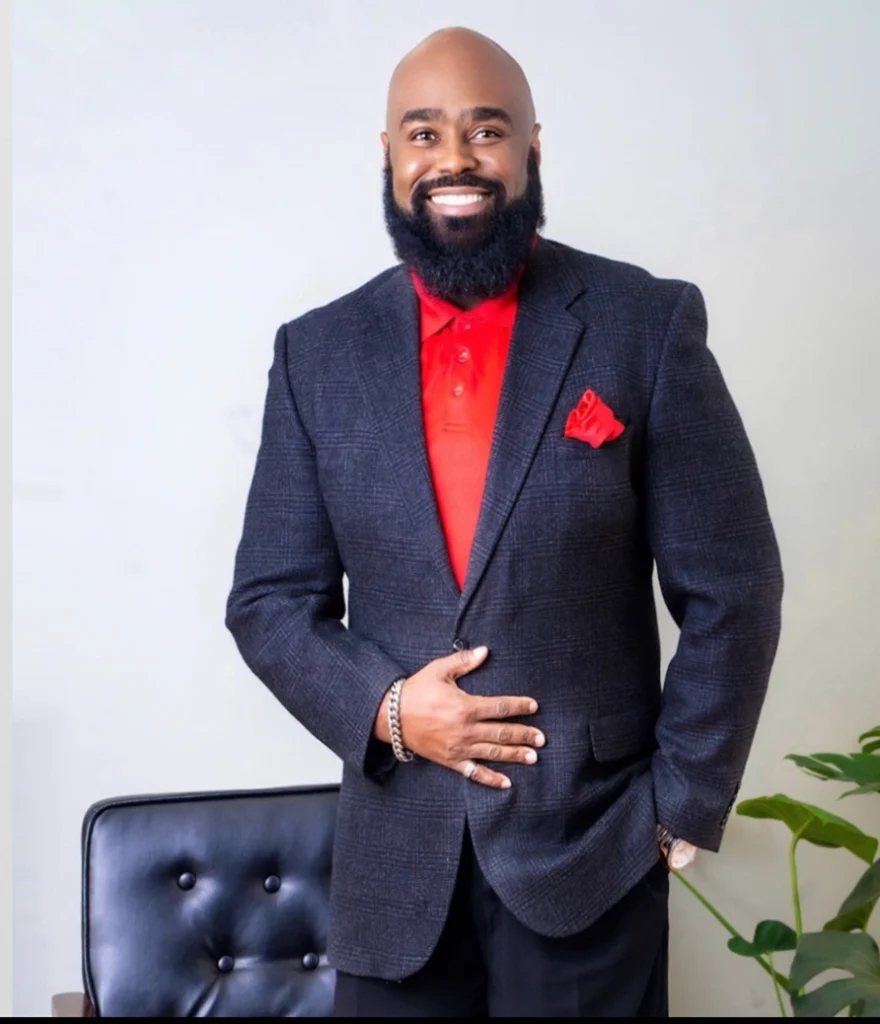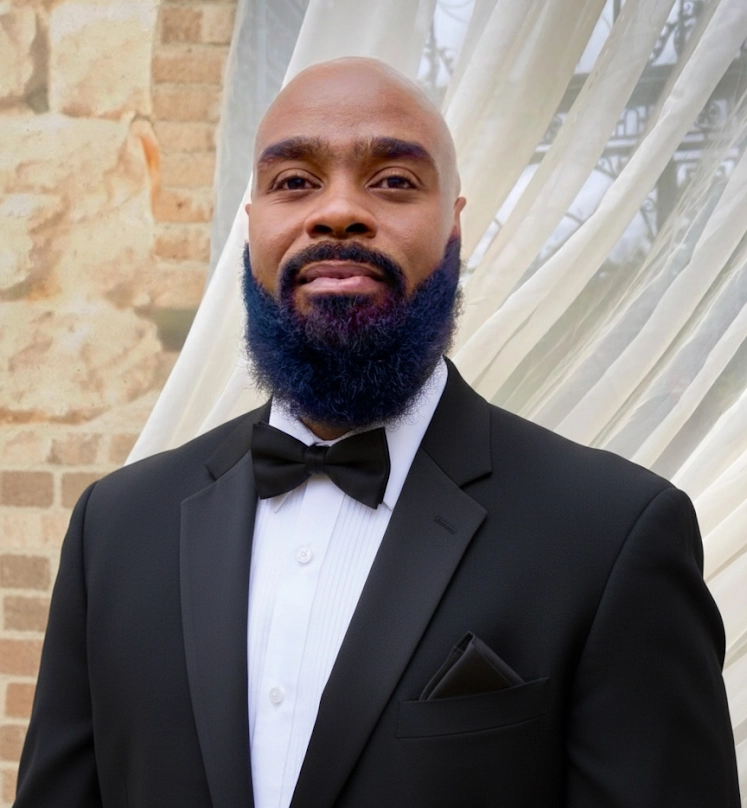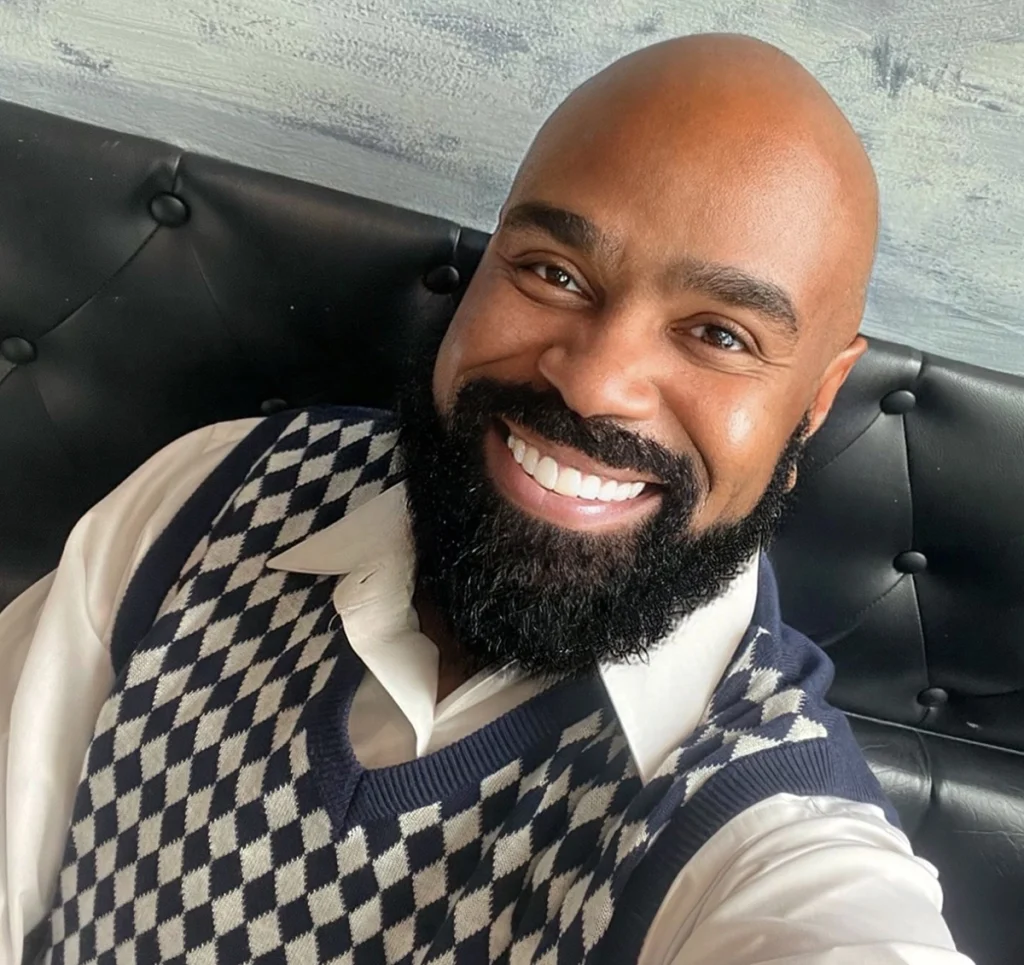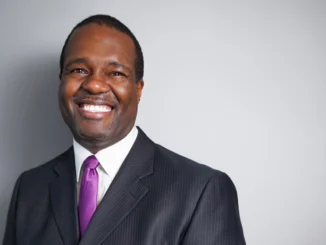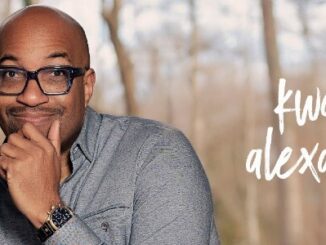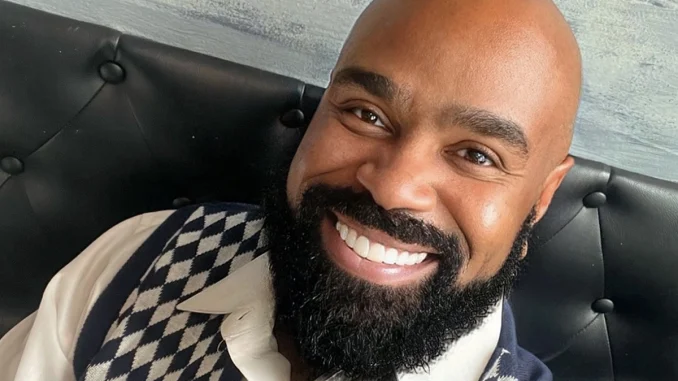
By Staff
Khalid Scott, BS, MSW, LCSW, CADC, CODP-I, C-SWHC, LPHA, CPLC, and CWEL, stands as a transformative voice in mental health, particularly in his work with Black men and veterans. His approach bridges clinical excellence with cultural fluency, addressing the unspoken traumas that often shape identity and resilience. With a foundation built on compassion, discipline, and purpose, Scott’s practice embodies a sacred balance—where evidence-based care meets lived experience, and where therapy becomes a sanctuary for truth, healing, and restoration. His work challenges stigma, redefines masculinity, and empowers his clients to see vulnerability not as defeat, but as a divine form of strength.
What inspired you to specialize in working with Black men and veterans, and how has that shaped your approach to therapy?
My inspiration came from both presence and absence—what I saw and what I didn’t see in my community and in the field. Too many Black men were carrying invisible wounds with no safe place to unburden themselves, and too many veterans were attempting to reintegrate into a society that often misunderstands their sacrifice. I wanted to create a lane where both groups could be seen, heard, and healed. This vision shaped my therapeutic approach into one grounded in cultural humility, empowerment, and accountability. I meet clients exactly where they are, but I am intentional about not leaving them there.
How do you create a safe and healing space for Black men who may be hesitant to seek therapy or express vulnerability?
Safety begins with authenticity. I don’t talk at my clients—I talk with them. I show up as a man first and a clinician second, because that human connection builds trust before credentials ever can. My language and energy communicate, “You don’t have to perform here.” I validate their lived experiences while challenging the narratives that keep them guarded. In that environment, vulnerability transforms into strength, and transparency becomes the foundation of healing.
What are some of the most common challenges you see among veterans transitioning back into civilian life, and how do you help them navigate those experiences?
The greatest challenge is often identity—reconciling who they are beyond the uniform. Many veterans wrestle with issues such as a poverty mindset, substance use, depression, loss of structure, and disconnection from purpose. I guide them through that transition by helping redefine what service looks like in civilian life. We work to rebuild trust in themselves and others, while creating new missions that honor their discipline and resilience. Healing begins when they realize those same strengths that served them in the military can serve them again—just in a different form.
How do race, masculinity, and mental health intersect in your work, and what conversations are you helping to normalize within the community?
They intersect daily, in every session. For Black men, societal expectations of masculinity often collide with the internal reality of pain and trauma. I aim to normalize conversations around emotional intelligence, intergenerational wounds, relational accountability, and vulnerability. I remind my brothers that healing doesn’t diminish their strength—it refines it. Real power is being emotionally present while remaining purpose-driven.
Can you share a moment or story from your practice that reaffirmed your purpose as a therapist?
I’ll never forget a client—a veteran and father—who once said, “You helped me see that I’m not broken, just bruised.” That moment crystallized everything I believe about this work. Therapy isn’t about fixing people; it’s about helping them remember their wholeness. Hearing those words reaffirmed my purpose—to walk with people through their pain until they rediscover their light. Healing, when guided with compassion and truth, doesn’t just change lives—it changes legacies.
How do you approach breaking down the stigma around therapy, especially within Black communities and among men?
I dismantle stigma by example. I show up as a living, breathing testimony that therapy is both for and by us. I speak openly about mental health in barbershops, churches, community centers—places where men naturally gather. I use accessible language instead of clinical jargon. When men see someone who looks like them, speaks their language, and embodies emotional balance, it chips away at that old belief that “therapy ain’t for us.” I remind them that healing is our birthright.
What tools or techniques do you find most effective in helping your clients build emotional resilience and self-awareness?
I blend cognitive-behavioral therapy, narrative therapy, and mindfulness—but I tailor everything to the culture. I teach men to name their emotions, challenge distorted beliefs, and reconnect with purpose. Journaling, grounding exercises, and values-based goal setting help them move from reacting to responding. Emotional resilience begins with emotional literacy—the ability to translate pain into understanding and understanding into growth.
Looking ahead, what changes would you like to see in how mental health is addressed for Black men and veterans at a societal level?
I want to see a paradigm shift toward culturally competent care and representation at every level of leadership. Systems must honor the historical and social contexts that shape Black men’s mental health rather than pathologizing them. For veterans, there needs to be stronger continuity of care between military and civilian life. Healing should be holistic, inclusive, and accessible—rooted not just in treatment, but in transformation.
About
Khalid B. Scott, BS, MSW, LCSW, CADC, CODP-I, C-SWHC, CWEL, CPLC, LPHA, has a Social Work career spanning over 32 years and the recipient of 30 Social Service related awards. Currently he’s a Licensed Clinical Social Worker/Substance Use Disorder (SUD) Specialist at the Department of Veterans Affairs and in private practice with International High Achievers providing psycho-social individual, family and marriage therapies.
Khalid is also a contractual trainer and college lecturer at UNC, Mitchell, Adler School of Psychology, California State University, Columbia, CSU, Malcolm X, Governors State, UIC, Moraine Valley and DePaul University (MSW program-Chicago campuses). Khalid has been a Administrator in specialized foster care, mental health and substance use disorder programs.
Khalid received his BS in Corrections and Criminal Justice from CSU and MSW from UIC Jane Addams (College of Social Work).
Khalid, whose a proud father of a UChicago medical student Anayah and in his spare time mentors both adults and youths, a Professional Life Coach, a member of Alpha Phi Alpha Fraternity and provides social work/clinical-based podcasts/in person trainings/workshops and is a motivational speaker for various Chicagoland forums and self-empowerment events.
Khalid is a published author in 9 books, has appeared on several TV talk shows (as a featured guest clinician), as well has appeared on multiple radio talk shows, newspapers (Sun-times) and magazines (Ebony-Jet).
Khalid is a 6 time Father of the Year, 2 time Mentor of the Year, 2 time Social Worker of the Year, Chicago Defending Man of Excellence and a 10 time award winning veteran serving 9-1/2 years combined in both the US Army and Illinois Army National Guard.
____________
Professional Websites:
____________
Social Media Handles:



